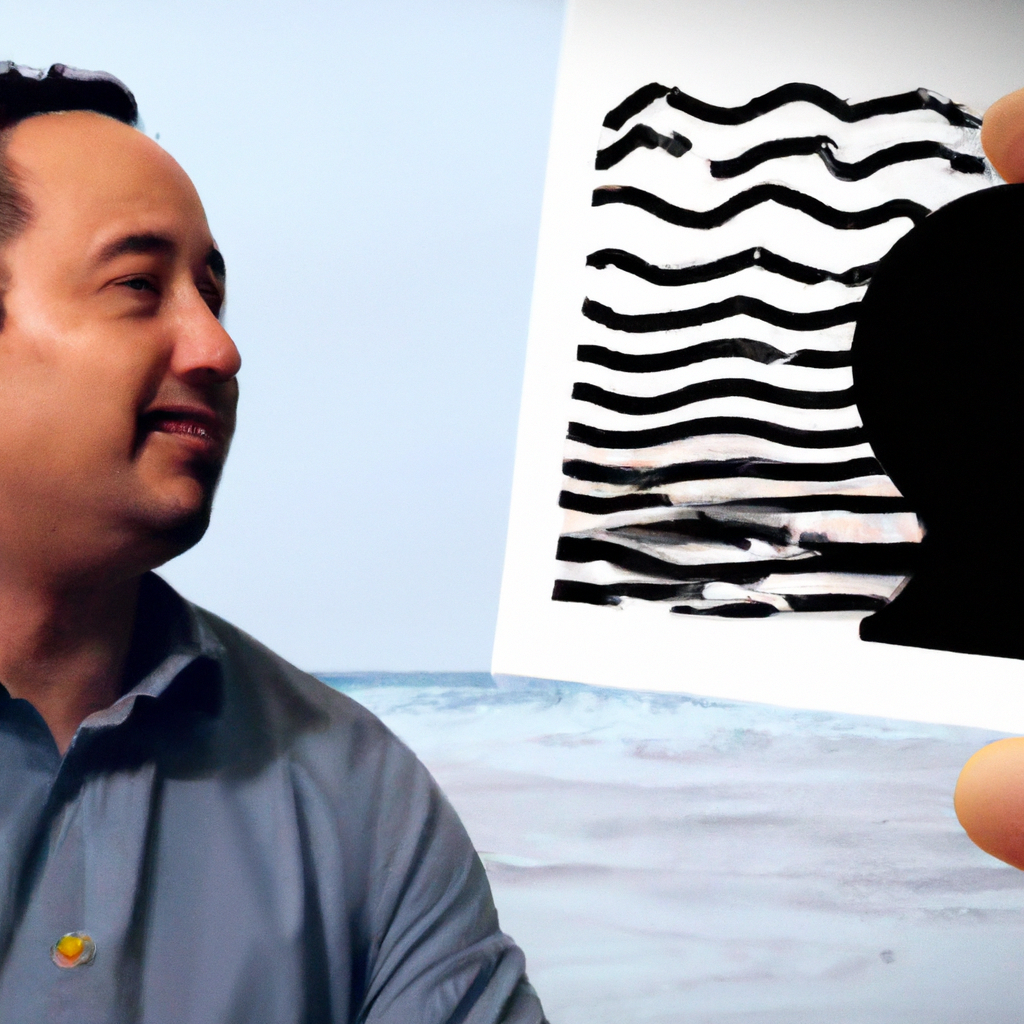Andres Nocioni questions the fairness of Eric Gordon representing the Bahamas

The Impact of Andres Nocioni on International Basketball
Andres Nocioni, a former professional basketball player from Argentina, has recently raised concerns about the fairness of Eric Gordon representing the Bahamas in international basketball competitions. Nocioni, known for his strong opinions and outspoken nature, believes that players should only be allowed to represent the country of their birth or the country they hold citizenship in.
Nocioni argues that allowing players to switch national teams based on their heritage or family ties undermines the integrity of international basketball. He believes that representing a country should be a matter of loyalty and commitment, and that players should not be able to simply choose a country to play for based on their personal preferences or potential advantages.
In the case of Eric Gordon, who was born and raised in the United States, Nocioni questions the legitimacy of him representing the Bahamas. Gordon’s mother is of Bahamian descent, which makes him eligible to play for the Bahamian national team. However, Nocioni argues that this connection is not strong enough to justify Gordon’s representation of the Bahamas.
Nocioni points out that Gordon has spent the majority of his life in the United States, playing college basketball at Indiana University and then going on to have a successful NBA career. He argues that Gordon’s ties to the Bahamas are tenuous at best, and that his decision to play for the Bahamian national team is motivated by personal gain rather than a genuine connection to the country.
Furthermore, Nocioni believes that allowing players like Gordon to switch national teams undermines the development of basketball in smaller countries. He argues that by allowing players from more established basketball nations to represent smaller countries, it takes away opportunities for local players to develop and compete at the international level.
Nocioni suggests that a stricter set of rules should be put in place to determine eligibility for national teams. He believes that players should only be allowed to represent the country of their birth or the country they hold citizenship in, with limited exceptions for players who have lived in a country for a significant period of time and have made a genuine commitment to that country.
While Nocioni’s views may be controversial, they highlight an ongoing debate in international basketball. The issue of player eligibility has become increasingly complex in recent years, with more players seeking to switch national teams for various reasons.
Some argue that allowing players to switch national teams promotes diversity and inclusivity in international basketball, allowing players to represent their heritage and connect with their roots. Others, like Nocioni, believe that it undermines the integrity of the sport and creates an unfair advantage for certain teams.
Ultimately, the decision on player eligibility rests with the governing bodies of international basketball, such as FIBA. It is up to them to strike a balance between promoting inclusivity and maintaining the integrity of the sport. Until then, the debate will continue, and players like Eric Gordon will continue to represent countries that may not have a strong connection to their personal history or upbringing.
Analyzing Eric Gordon’s Eligibility to Represent the Bahamas

Andres Nocioni, a former professional basketball player from Argentina, has recently raised concerns about the eligibility of Eric Gordon to represent the Bahamas in international basketball competitions. Nocioni questions the fairness of Gordon’s decision to play for the Bahamas, as he believes that Gordon’s connection to the country is tenuous at best.
Gordon, a talented shooting guard currently playing for the Houston Rockets in the NBA, was born and raised in the United States. His father, Eric Gordon Sr., is of African-American descent, while his mother, Denise Gordon, is of Bahamian descent. According to FIBA rules, a player can represent a country if they have a parent or grandparent who was born there. In Gordon’s case, his eligibility to play for the Bahamas is based on his mother’s heritage.
Nocioni argues that Gordon’s connection to the Bahamas is primarily through his mother, and that he has not demonstrated a strong cultural or personal tie to the country. He suggests that Gordon’s decision to represent the Bahamas may be driven more by strategic considerations rather than a genuine connection to the nation.
The issue of players representing countries they have limited ties to is not unique to Gordon. In recent years, there have been several cases of athletes choosing to play for countries that offer them better opportunities for international competition. This phenomenon, known as “passport shopping,” has raised questions about the integrity and fairness of international sports.
Proponents of allowing players to represent countries based on their parentage argue that it promotes diversity and inclusivity in international sports. They believe that athletes should have the freedom to choose the country they feel most connected to, regardless of their place of birth or residence. This perspective emphasizes the importance of personal identity and the right to self-determination.
However, critics like Nocioni argue that this approach can lead to a dilution of national identity and a loss of authenticity in international competitions. They believe that players should have a stronger connection to the country they represent, either through birth, residency, or a demonstrated commitment to the nation’s culture and values.
In the case of Eric Gordon, Nocioni questions whether his decision to play for the Bahamas is driven by a genuine connection to the country or simply a strategic move to enhance his international basketball career. He suggests that players should be required to demonstrate a stronger tie to the country they represent, such as having lived there for a certain period of time or actively participating in the nation’s basketball development programs.
The debate over eligibility in international sports is complex and multifaceted. While FIBA rules currently allow players to represent countries based on their parentage, there is ongoing discussion about whether these rules should be revised to ensure a more meaningful connection between athletes and the countries they represent.
In the case of Eric Gordon, his eligibility to play for the Bahamas raises questions about the fairness and integrity of international basketball competitions. While some argue that players should have the freedom to choose the country they feel most connected to, others believe that a stronger tie to the nation should be required. Ultimately, the decision on eligibility criteria lies with FIBA and other governing bodies, who must carefully consider the implications of their rules on the integrity and fairness of international sports.
Examining the Fairness of Eric Gordon’s Representation for the Bahamas
Andres Nocioni, a former professional basketball player from Argentina, has recently raised concerns about the fairness of Eric Gordon representing the Bahamas in international basketball competitions. Nocioni argues that Gordon, who was born and raised in the United States, should not be allowed to play for another country, as it undermines the integrity of the sport.
One of the main points Nocioni raises is the issue of nationality. He believes that representing a country in international competitions should be reserved for athletes who have a genuine connection to that nation. In his view, Gordon’s decision to play for the Bahamas is purely strategic, as it allows him to compete in tournaments where the competition may be less fierce. Nocioni argues that this undermines the spirit of international sports, where athletes are expected to compete for their home country out of a sense of national pride.
Another concern Nocioni raises is the potential impact on local talent development. By allowing players like Gordon to represent countries they have no real connection to, Nocioni argues that it hinders the growth and development of local talent. He believes that countries should focus on nurturing and supporting their own athletes, rather than relying on foreign players to bolster their chances of success. This, he argues, is essential for the long-term sustainability and growth of the sport within a country.
Nocioni also questions the fairness of allowing players to switch nationalities. He argues that once an athlete has represented a country at the international level, they should be committed to that nation for the rest of their career. Allowing players to switch nationalities, he believes, creates an unfair advantage for certain countries, as they can recruit talented players from around the world, while smaller nations struggle to retain their own talent.
However, it is important to consider the counterarguments to Nocioni’s concerns. One argument in favor of allowing players like Gordon to represent other countries is the concept of dual nationality. Many athletes have dual citizenship due to their family background or personal circumstances. In these cases, it can be argued that they have a legitimate connection to both countries and should be allowed to choose which one to represent.
Furthermore, the globalization of sports has led to increased mobility and opportunities for athletes. In today’s interconnected world, it is not uncommon for athletes to play for clubs in different countries or even continents. This exposure to different cultures and playing styles can enhance their skills and make them valuable assets to national teams, regardless of their place of birth.
Ultimately, the question of fairness in international sports representation is a complex one. While Nocioni raises valid concerns about the integrity of the sport and the impact on local talent development, there are also arguments in favor of allowing athletes to choose which country to represent. Striking the right balance between these competing interests is crucial to ensure the continued growth and success of international sports competitions.

